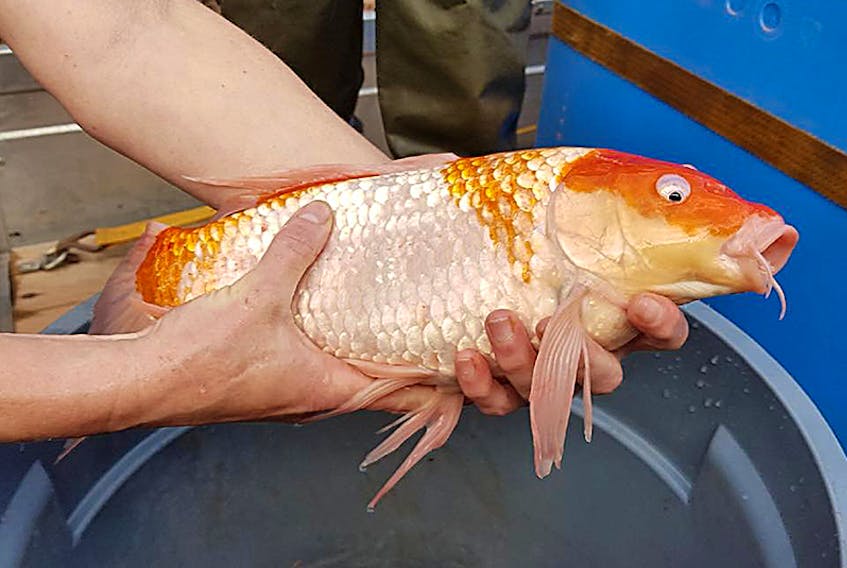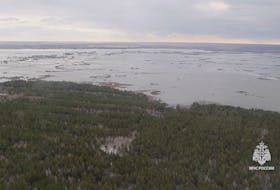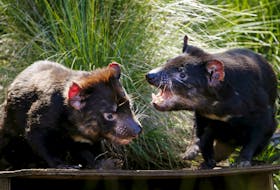By Jason Daley
Officials from P.E.I.’s Fish and Wildlife department are reminding the public that released koi can be a threat to P.E.I. waters after one was recently caught in Morell River. They believe the animal was likely a pet koi released by its owner.
“Releasing the fish into the wild is not an option,” said Rosanne MacFarlane, a freshwater fisheries biologist with the P.E.I. government.
“It can be cruel for the fish if conditions in that location are not good.”
Koi are domesticated carp selectively bred for their unique colours and patterns. They are often displayed for decorative purposes in outdoor koi ponds or water gardens in residential backyards.
As a non-native species, if they are released or escape into local rivers they can potentially carry disease and parasites to the native and established fish species in the province such as brook trout, Atlantic salmon and rainbow trout.
“My biggest fear is that they would bring something in that got into our native fish that they haven’t experienced before. You could lose a lot of your fish because of it,” said MacFarlane, who works with the department of communities, land and environment.
Introducing non-native species to a foreign environment can potentially lead to them becoming an invasive species, which can be destructive to an ecosystem’s biodiversity. Koi are an aggressive fish that grow quickly and eat a lot.
“They would be competing for space and food with our own fish,” MacFarlane said.
MacFarlane and other biologists are reminding the public to practise responsible pet ownership, and that includes fish. She said simply abandoning a fish that one is unable to care for any more is never the right solution.
“It’s not good pet ownership ethics. If you have a fish and can’t look after it, you’re not doing the right thing by just taking the problem somewhere else.”
MacFarlane is reminding the public to think long term when considering getting any pet. Koi can live a long time and need care in summer and winter. She recommends owners who are no longer able to properly care for their fish to check with the store where they purchased it to see if they may take the fish back, or if someone else might be able to take the fish.
“If these options are not available, then the fish should be humanely euthanized either by the owner, or if that isn't acceptable, then perhaps a veterinarian might do it for them.”
The female koi fish caught in Morell was healthy looking with no indication of disease. It was sent to the Atlantic Veterinary College after its capture.









